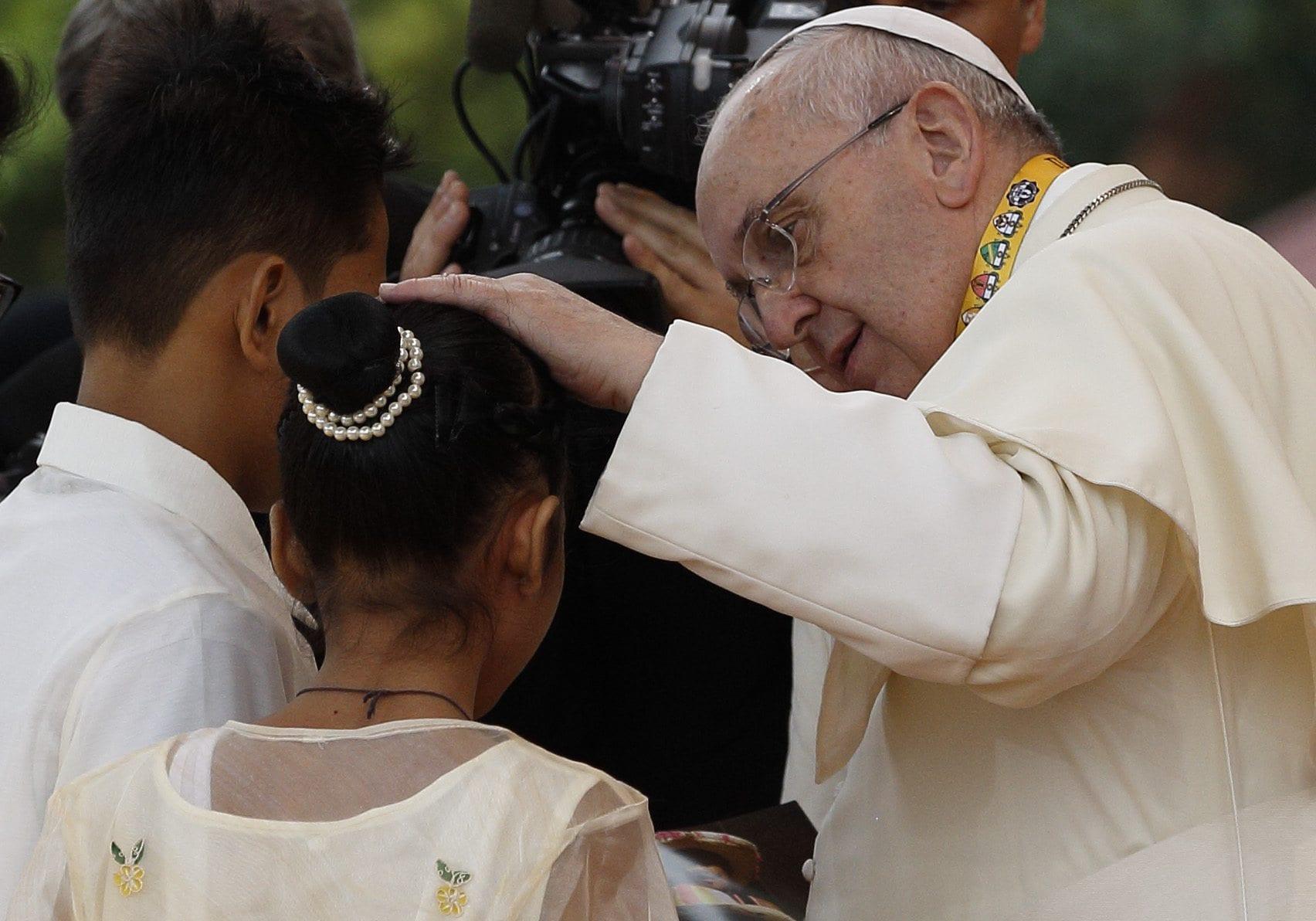ROME— Big boys, as is well known, do actually cry, as do mothers, children, grandparents, and pretty much everyone else at one point or another, forming what Pope Francis on Thursday called an “ocean of desolation” requiring mercy and compassion.
For this reason, Pope Francis led a prayer vigil on Thursday to “dry the tears” of all those who are weeping.
Among the groups the pontiff mentioned as in need of special consolation:
- Christian victims of persecution, people in imminent danger of death, and those who suffer torture, slavery or are subjected to medical experiments.
- Children “who’re not loved,” and those who are victims of abuse and violated in their human dignity.
- Victims of war, terrorism, violence.
- The sick, the imprisoned, the depressed and the anxious.
- Families who have lost a child, even before birth, and families forced to separate due to “human injustice.”
Pope Francis, and the thousands gathered in St. Peter’s Basilica on Thursday had tears, and prayers, for them all.
“The bitterest tears are those caused by human evil: the tears of those who have seen a loved one violently torn from them; the tears of grandparents, mothers and fathers, children; eyes that keep staring at the sunset and find it hard to see the dawn of a new day,” Francis said.
The pontiff became emotional himself while listening to the stories of a family whose son committed suicide, as well as a Pakistani political refugee persecuted for his Christian faith.
“We need the mercy, the consolation that comes from the Lord,” Francis said. “All of us need it. This is our poverty but also our grandeur: to plead for the consolation of God, who in his tenderness comes to wipe the tears from our eyes.”
There were very few dry eyes on Thursday after the “Universal Prayer”, also known as the Prayer of the Faithful, in which the intentions listed above were presented, with Francis answering each one with a short invocation.
In his address, which came before the prayer, the pope said that during times of sadness or sickness, or when one is victim of persecution, “Everyone looks for a word of consolation.”
“We experience what it means to be disoriented, confused, more heartsick than we ever thought possible,” he said, adding that in those moments one looks for someone “who really understands our pain.”
“Reason by itself is not capable of making sense of our deepest feelings, appreciating the grief we experience and providing the answers we are looking for,” Francis said. “At times like these, more than ever do we need the reasons of the heart, which alone can help us understand the mystery which embraces our loneliness.”
However, Francis said, “in our pain, we are not alone. Jesus, too, knows what it means to weep for the loss of a loved one.”
He then told the Gospel story of the death of Jesus friend, Lazarus, and the tears shed by the deceased sister’s Maria.
“The evangelist John, in describing this [scene], wanted to show how much Jesus shared in the sadness and grief of his friends,” Francis said.
The passage about Jesus’ tears, he added, have unsettled theologians, but they’ve also “bathed so many souls and been a balm to so much hurt.”
To the pope, the fact that God himself cried shows that everyone can weep too.
“The tears of Jesus serve as an antidote to my indifference” before the suffering of others, Francis said. He said they also stand as a testimony of the comfort prayer brings in moments of “confusion, dismay, and tears.”
The Argentine pontiff has spoken of the power of crying so much that some observers even speak of Francis’ “theology of tears.”
In 2013, at the Mass for the Feast of the Exaltation of the Holy Cross, the pope challenged Catholics to come face to face with human misery, as a way to fully appreciate Jesus’ crucifixion.
The mystery of the cross, he said at the time, can only be understood “by kneeling, in prayer, but also through tears.”
Earlier that same year, as he was visiting the Italian island of Lampedusa, he urged the world to cry for the thousands of migrants who die trying to reach Europe by sea.
“Who has wept for the deaths of these brothers and sisters?” Francis asked during a homily at Mass there. “Who has wept for the people who were on the boat? For the young mothers carrying their babies? For these men who wanted something to support their families?”
The globalization of indifference, he said, “has taken from us the ability to weep.”
This April, on the way back to Rome after a five-hour visit to the Greek island of Lesbos, where he met thousands of refugees, he told reporters travelling with him that the situations he had encountered “make you weep.”
On that trip he greeted over 200 children, many of whom gave him drawings, which he took to Rome, telling one child he wanted to keep the image on his desk.
The pictures portrayed people drowning at sea after their ships wrecked and many other traumatic experiences the children had. Showing one with a crying sun, Francis said: “If the sun is able to cry, we should be able to shed at least one tear.”
“A tear would do us good,” he insisted.
Although pictures usually show him smiling, giving the faithful in St. Peter’s Square a thumbs up, or with a solemn look when celebrating Mass, Francis has shed tears in public too.
In 2014 for instance, the pontiff cried after a priest shared his story of the years he spent in prison at the hands of Albania’s communist regime.














